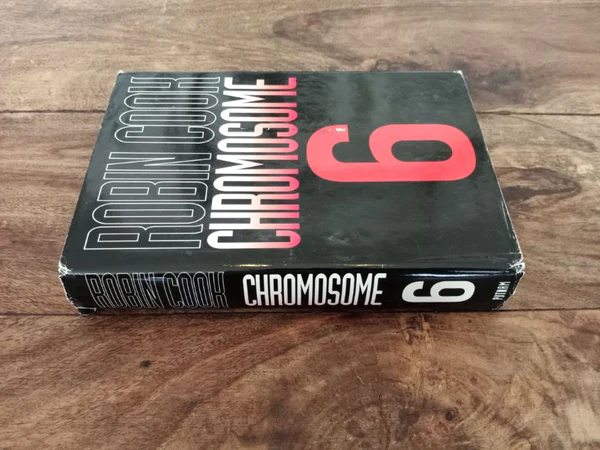Many of us shy away from novels that involve distant fields such as molecular biology and pathology since they get overly technical with very less relatability. My first impression on hearing recommendations on Chromosome VI by Robin Cook was that it should be a textbook. Considering the title, who can blame me? The cliche proverb “Never judge a book by its cover” has never been more relatable than while reading this. It was a far cry from being a textbook. As an avid lover of fiction, I was very excited about this read. I can vouch that this novel does not require any technical knowledge of the field. Rather, it may instill an interest in you to know more about this intriguing field.
When Carlo Franconi, a notorious mafia figure in New York is gunned down and his body goes missing from the medical examiner’s office, it creates a media fiasco. Another mutilated body turns up which is recognized to be Franconi by Dr Laurie Montgomery and Dr Jack Stapleton. However, the autopsy of this body brings up more confusion rather than solving the mystery. On the continent of Africa, Dr Kevin Marshall is facing a crisis coming to the realization that his creation may not be what he expected.
In this story, Dr. Marshall is a molecular scientist who pioneered a method of inserting genes from human chromosome VI into embryos of primates thereby creating humanized animals. He is then employed by a company to create a perfect organ donor using this technique on bonobos, a type of chimpanzee found only in the Congo Basin. However, this inadvertently creates an early version of a proto-human putting the whole operation in jeopardy. Chromosome VI takes us on a journey with these groups of individuals as they realize the dangers of uncontrolled use of genetic manipulations and learn the thin line that separates humans from primates.
Don’t let the blurb give you the impression of the novel as being too scientific and tedious. The characters were refreshing and had such incredible chemistry. The scientific jargon was well-explained in layman’s terms ensuring any and all readers will be able to understand the storyline. Such explanations were beautifully woven into the story so as to not break the flow. I absolutely loved the pace of the story and how it kept me on my toes questioning what might happen next.
If I were to put forward a few criticisms regarding the book purely based on my preferences, they would be that the chapters were lengthy and that the ending of the story was too abrupt. I am used to reading shorter chapters as it gives me a feeling of being quick-paced and not stagnant in the storyline. About the ending of the book, I would have preferred to know more about how the scientists got out and what exactly happened to the protohumans they created. It left me in a slight state of anxiety.
As a novice in the molecular biology field myself, this was like a wake-up call. Science is one of the most interesting and fun fields to be a part of, and it is very easy to get lost in all its applications and how it can make our lives easier, forgetting the dangers. Manipulating the vast biodiversity on our beautiful planet should be done with utmost care and the responsibility that falls on us should never be forgotten. Scientific discoveries open an unlimited number of doors but the exploration of these openings should be done with the proper limitations in mind. Chromosome 6 reminded me of the importance and need of bioethics and transparency in scientific research as things can go sideways in an instant. This point was beautifully summarized in one of my favorite lines from this book, “It’s hard to believe, we’re prisoners of our own creations.”
Writer: Amaya Karawgoda


